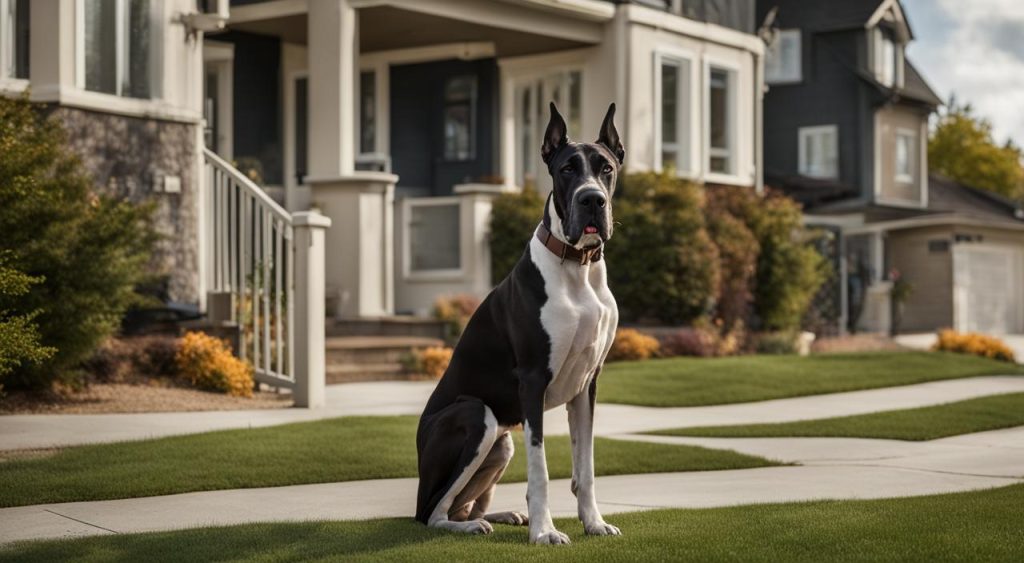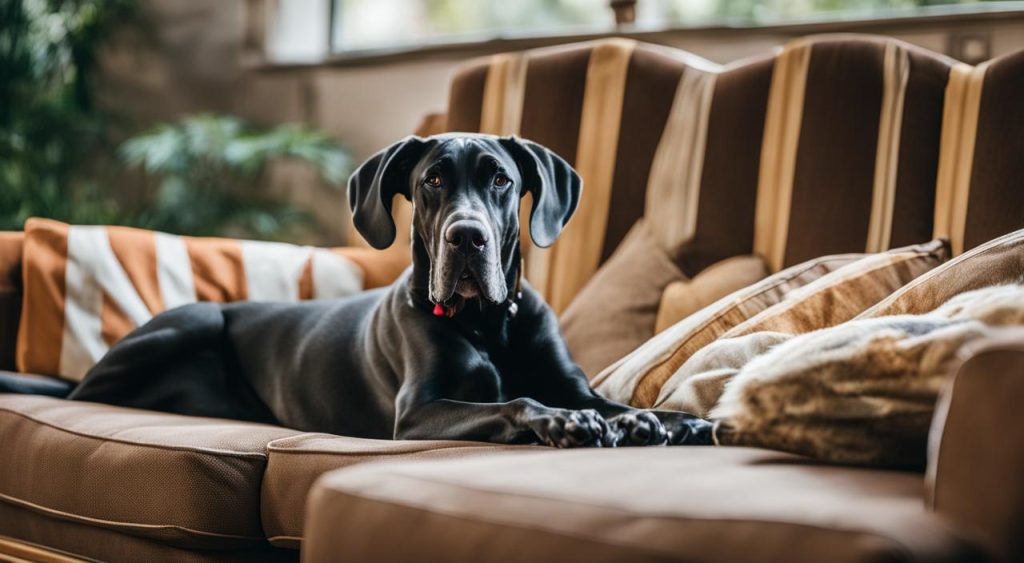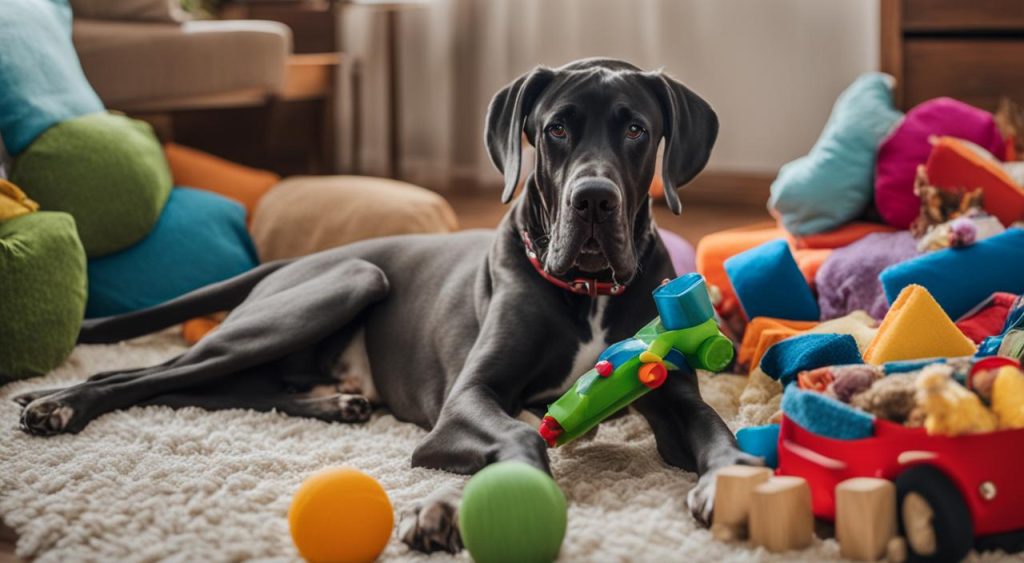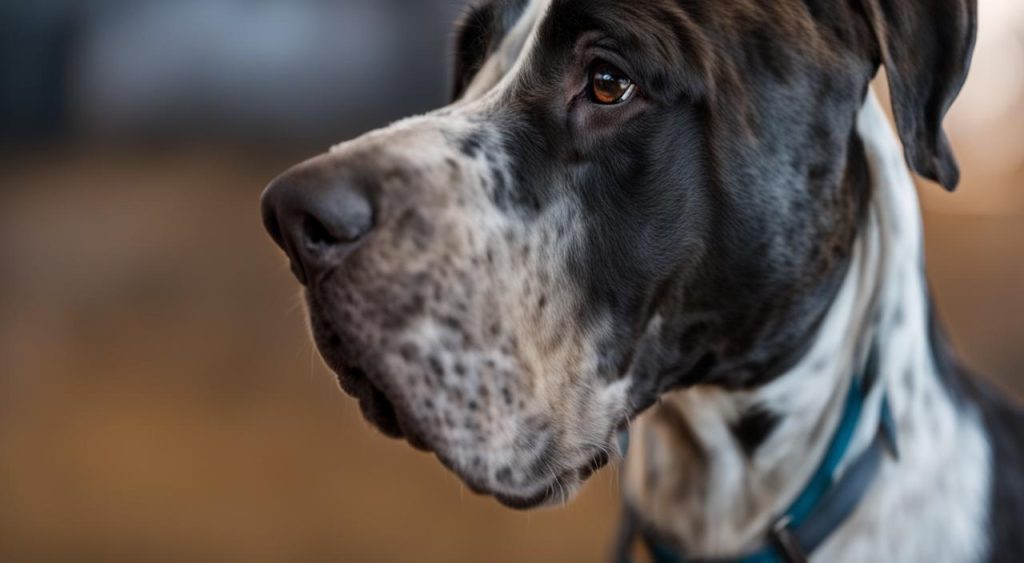Great Danes are known for their gentle giant nature and mild-mannered temperament. When it comes to strangers, their behavior can vary. While some Great Danes are friendly with everyone they meet, others may be more protective or standoffish. Socialization plays a crucial role in shaping their behavior, especially towards unfamiliar individuals.
Young Great Danes need frequent socialization to build confidence and promote a stable temperament. By introducing them to different people, environments, and situations, they can learn to recognize normal behaviors and differentiate them from abnormal ones. Proper socialization also helps Great Danes to interact peacefully with other pets, as their behavior can range from peaceful to dominant.
Obedience training is essential for Great Danes. This breed is sensitive and responds best to positive training methods. By establishing boundaries and teaching them to listen and respond to commands, owners can help Great Danes become well-behaved companions.
It is important to note that Great Danes may drool and slobber, and their size and boisterous behavior when young may require supervision to prevent destructiveness. Understanding their behavior and providing the right socialization and training can ensure that Great Danes develop into friendly and well-adjusted pets.
Key Takeaways:
- Great Danes can be friendly with strangers, but their behavior varies.
- Proper socialization from a young age is crucial for Great Danes to recognize normal behaviors and interact peacefully with strangers.
- Obedience training is important for establishing boundaries and ensuring a well-behaved Great Dane.
- Great Danes are sensitive and respond well to positive training methods.
- Supervision may be necessary to manage their drooling, slobbering, and energetic behavior.
Great Danes and Stranger Anxiety
When it comes to their behavior around strangers, Great Danes are generally friendly and outgoing with people they know. However, they may exhibit some level of stranger anxiety, which can manifest in different ways. This can range from being slightly standoffish to being protective of their owners in the presence of strangers.
Proper socialization from a young age plays a crucial role in helping Great Danes learn to recognize normal behaviors of “good guys” and differentiate them from abnormal behaviors. Without proper socialization, they may become suspicious of everyone, potentially leading to aggression or shyness.
It is therefore essential to thoroughly socialize Great Danes to prevent any negative behaviors. By exposing them to various people, environments, and situations, they can learn to interact confidently and calmly with strangers.
Training also plays a vital role in their temperament towards strangers. It is important to train Great Danes consistently and using positive reinforcement methods. This helps ensure they listen and respond appropriately to their owners’ commands, promoting a sense of control and security.
By focusing on socialization and training, Great Danes can develop a more relaxed and positive attitude towards strangers. Consistency and positive reinforcement will help them overcome any stranger anxiety they may experience, leading to well-adjusted and friendly companions.
The importance of socialization and training for Great Danes
Socialization plays a vital role in shaping a Great Dane’s behavior towards strangers. It is crucial to introduce them to various people, environments, and situations from a young age to prevent fear or aggression. Properly socialized Great Danes can recognize appropriate behaviors and respond calmly to strangers.
“Proper socialization is key to ensuring that they recognize normal behaviors and can distinguish abnormal ones.”
Training is equally important for this breed, as they are intelligent and trainable. Positive reinforcement methods work best with Great Danes, as they are sensitive and can be easily confused or mistrustful of harsh training techniques. Obedience training helps establish boundaries and teaches them to listen and respond to commands.
“By providing proper socialization and training, Great Danes can become well-adjusted and friendly companions for their owners.”
Conclusion
Great Danes have the potential to be friendly with strangers, but their behavior can vary depending on genetics, socialization, and training. While these gentle giants are generally outgoing and easygoing, some Great Danes may exhibit stranger anxiety or protective instincts towards their owners. However, with proper socialization and training from a young age, Great Danes can develop positive interactions with strangers and learn to distinguish between normal and abnormal behaviors.
It’s important to remember that socialization plays a crucial role in shaping a Great Dane’s behavior around strangers. By introducing them to various people, environments, and situations early on, they can develop the confidence and social skills necessary to interact positively with strangers. Additionally, obedience training is essential to establish boundaries and teach them to respond to commands.
With the right socialization and training, Great Danes can become friendly and well-behaved companions for their owners. By investing time and effort in their development, you can help your Great Dane navigate their interactions with strangers and ensure they have a calm and balanced temperament, making them a delightful addition to your family.





